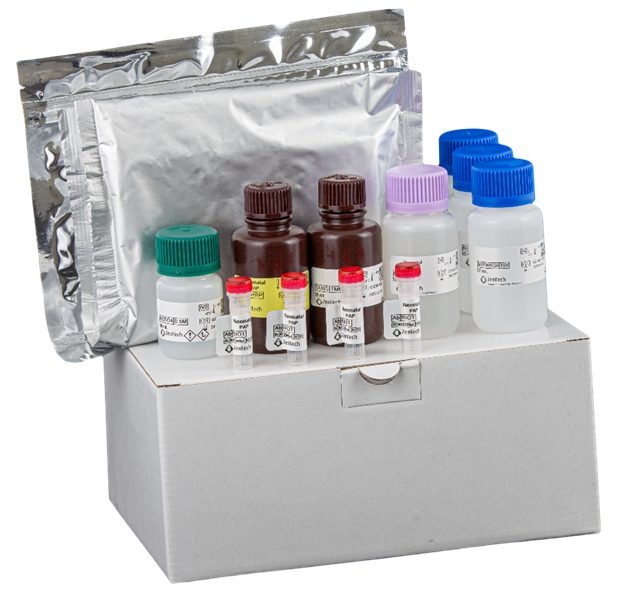Prevalence of Cystic Fibrosis According to Geographic Region
The prevalence of cystic fibrosis varies among populations.
As one of the most common genetic diseases in the Caucasian population, cystic fibrosis in newborns has an approximate frequency of 1/2,000 to 1/4,000 births. The disease is much rarer in Asian and African populations.
Clinic
Cystic fibrosis is caused by a genetic defect in the Cystic Fibrosis Transmembrane conductance Regulator (CFTR) gene, which encodes a chloride channel. This chloride ion concentration regulatory protein is present in all exocrine tissues. Cystic fibrosis symptoms in newborns include thick and viscous secretions in the lungs, pancreas, liver, intestines and reproductive system, caused by the defect in the transport of these ions by the CFTR protein. The increase in sweat salt concentration is also noticeable. Clinically, cystic fibrosis can be subdivided into a classic and an atypical, less severe form.
Patients with typical cystic fibrosis develop early multisystemic disease involving several or all of the organs mentioned above. Typical pulmonary manifestations are consistent with obstructive airway disease and include persistent and productive cough. Pancreatic insufficiency usually results in diabetes and pancreatitis. Meconium ileus (obstruction of the intestine by meconium in a newborn), a cystic fibrosis symptom in newborns, is present in 10 to 20% of babies with the disease. More than 95% of affected men are sterile, with female fertility being more moderately compromised.
Cystic fibrosis occurs at varying ages: at birth, in childhood, or in adulthood for less severe cases. Both sexes are equally affected.
Neonatal Screening for Cystic Fibrosis
A cystic fibrosis diagnosis in newborn usually involves two sequential tests: infants with abnormal results for the first test are retested with a second confirmatory test.
The first-line screening test systematically refers to an Immunoreactive Trypsin assay (IRT). With regard to second-line tests, however, several approaches exist. If IRT is positive, some screening protocols directly consider molecular CFTR testing, while others prefer to perform IRT testing on a second sample before considering molecular testing. A new parameter, PAP (Pancreatitis-Associated Protein), was recently introduced as a second-line confirmation marker, prior to the implementation of the molecular test.
From a molecular perspective, the most commonly identified pathogenic mutation in the CFTR gene is F508del (ΔF508, or c.1521_1523delCTT). This variant is identified in approximately 90% of individuals with cystic fibrosis, and in approximately 50% of homozygous patients.
The sweat test, measuring the concentration of chloride ions in the sweat of patients, makes it possible to phenotypically rule on the rarer molecular variants. Finally, measurement of the difference in nasal potential in some cases confirms or disproves a diagnosis for clinically suspicious patients who have a sweat test and inconclusive molecular analysis.
Treatment
Advances in the management of cystic fibrosis have made it possible to significantly improve the quality and life expectancy of patients. The treatment approach for cystic fibrosis is multidisciplinary, although lung involvement remains the leading cause of morbidity and mortality in these patients.
Mostly symptomatic, treatment therefore consists of management of respiratory disease by bronchial drainage (mucolytics, bronchodilators) and antibiotics, and digestive and nutritional involvement by supplementation with pancreatic extracts, vitamins and calories.
Recently, CFTR modulator treatments (ivacaftor®, lumacaftor®, tezacaftor®, elexacaftor®), a new class of drugs that work by improving production, intracellular processing and/or function of the defective protein, have emerged. Although only certain genotypes are eligible for these novel therapies, including the F508del variant, these drugs significantly improve respiratory function and reduce the incidence of pulmonary exacerbations.
Heredity
Cystic fibrosis is inherited in an autosomal recessive manner.

